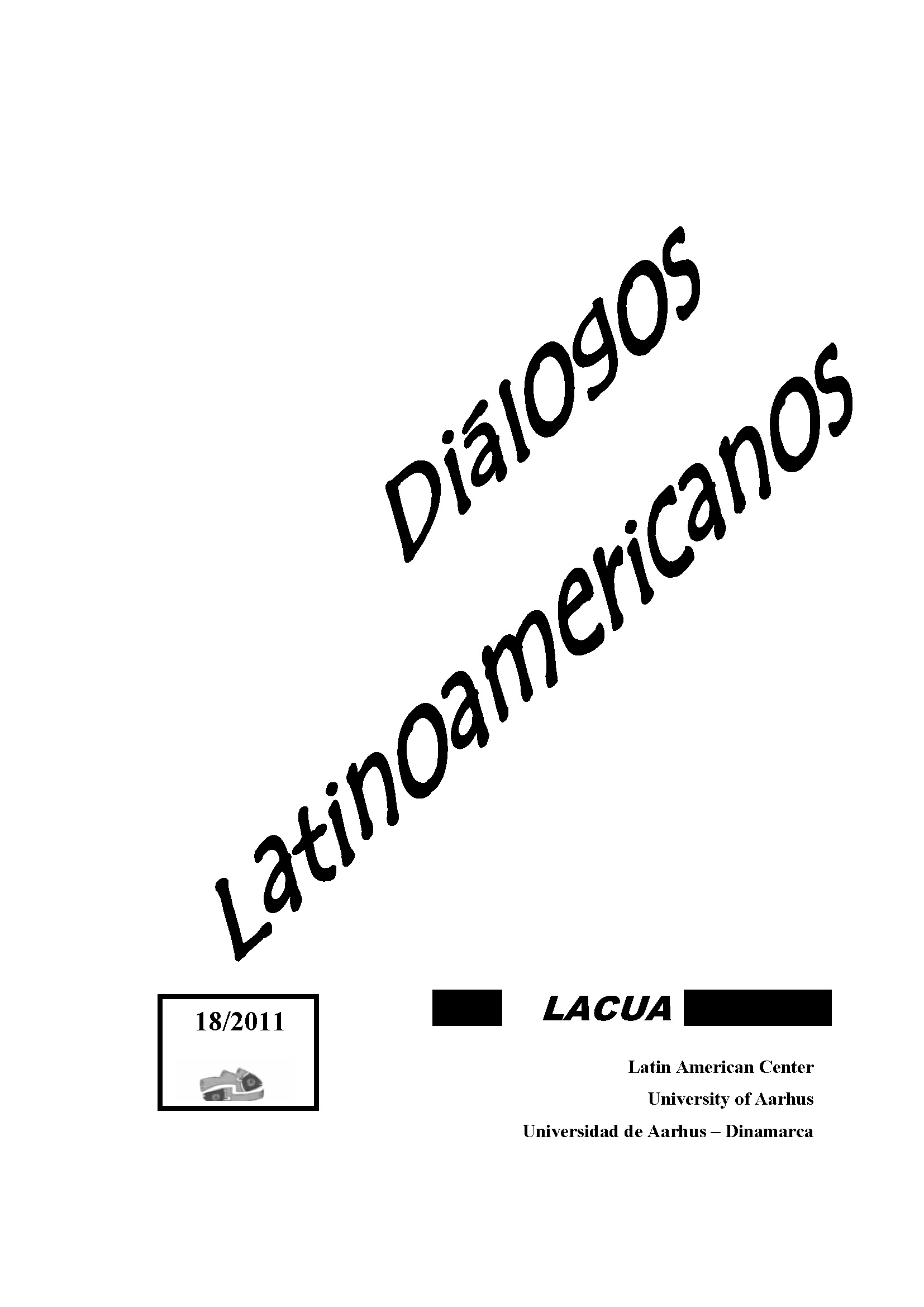(Neo)populismo Argentino desde el discurso Kirchnerista.
DOI:
https://doi.org/10.7146/dl.v12i18.113433Keywords:
argentine (neo)populism, [kirchnerismo], speech, powerAbstract
This paper analyzes the formation of the (neo)-populist process under the aegis of the Kirchner government in Argentine, paying special attention to the discourse produced in the last seven years. This movement is a sort of contemporary expression of the mass populism that had Juan Domingo Peron as the major figure. From this perspective, the (neo)-populism in Argentina represents a deployment of the concept of pluralistic and popular democracy in the sense that the general will exercised and expressed in the elections is interpreted by the government in a peculiar way. This (neo)-populism involves programmatic actions of pressure and alienation of intitutions, concentration of power in the hands of a leader and the application of the conspiracy theory both through the rethoric of false dilemmas and the demagogic rethoric, both used concurrently to carry out government policies and actions.
References
The New York Times. [documento WWW]. URL http://www.nytimes.com/2011/01/09/us/politics/09bai.html [fecha de consulta 10 enero 2011] Basset, Yann (2006) 'Aproximación a las nociones de populismo y gobernabilidad en los discursos contemporáneos sobre América Latina'. Revista Ópera. Universidad Externado de Colombia. N° 6. Pág. 27-45 Bauman, Zygmunt (2007). Identidad. Editorial Losada. Buenos Aires. Pág. 164. Calabria, Alejandro A. (2008) 'The contribution of rising prices for commodities for the fiscal accounts and the external sector'. [documento WWW]. URL
http://mpra.ub.uni-muenchen.de/23522/1/MPRA_paper_23522.pdf [fecha de consulta 11 enero 2011]. Charaudeau, Patrick (2009) 'Reflexiones para el análisis del discurso populista'. Discurso y Sociedad. Universidad de París. Volumen 3(2). Pág. 253-259. Cohen Agrest, Diana (2010) 'Del conventillo a facebook'. Diario La Nación. 13 enero. Pág. 1. Dahl, Robert (1992). La democracia y sus críticos. Editorial Paidós. Barcelona. Debord, Guy (1967). La sociètè du spectacle. Champ Libre. París. Dely, Carole (2011). 'Jacques Derrida: le “peut-être" d´une venue de l´autre- femme. La déconstruction du phallogocentrisme du duel au duo'. Revue électronique internationale. Internet Web Journal. Pág. 1-15 [documento WWW]. URL http://www.sens-public.org/IMG/pdf/SensPublic_CaroleDely_JDerrida-Le_peut-etre_d_une_venue_de_l_autre_femme.pdf [fecha de consulta 7 enero 2011]. Feuerbach, Ludwig Andreas (2009). La esencia del cristianismo. Colección Clásicos de Cultura. Editorial Trotta. Madrid. Forster, Ricardo (2010). La anomalía argentina. Aventuras y desventuras del tiempo kirchnerista. Editorial Sudamericana. Buenos Aires. Foucault, Michel (2010). El coraje de la verdad: el gobierno del sí y de los otros II. Fondo de Cultura Económica. Buenos Aires. Pág. 87 y ss. Fraga, Rosendo (2010) Néstor Kirchner: Legado Post Mortem. Revista Fortuna. 30 octubre. Pág. 27. Gregorich, Luis (2010) 'Las fantasías de la izquierda kirchnerista'. Diario La
Nación. 3 enero. Habermas Jürgen (1999). Further reflections on the Public Sphere. Ediciones Craig Calhoun. Sexta Reimpresión 1999. Baskerville. Norteamérica. Huxley, Aldous (2007). Nueva visita a un mundo feliz. Editorial Sudamericana. Buenos Aires. Krieger, Peter. 'La deconstrucción de Jacques Derrida (1930-2004)'. Anales del Instituto de Investigaciones Estéticas. Núm. 84. 2004. Pág. 179-188. Krugman, Paul (2011) 'Climate of hate'. The New York Times [documento
WWW]. URL http://www.nytimes.com/2011/01/10/opinion/10krugman.html [fecha de consulta 11 enero 2011] Laclau, Ernesto (2010). La razón populista. Quinta Reimpresión. Fondo de Cultura Económica. Buenos Aires. Laici, Luz (2010). Quisiera que me recuerden. Editorial Planeta. Buenos Aires. Mouffe, Chantal (1999). El retorno de lo político. Comunidad, ciudadanía, pluralismo, democracia radical. Editorial Paidós. Barcelona. Negri, Antonio (2008) La fábrica de porcelana. Una nueva gramática de la política. Editorial Paidós. Barcelona. Pág. 172-173. Perón, Juan D. (1974). El modelo argentino para el proyecto nacional
[documento WWW]. URL http://www.jdperon.gov.ar/institucional/colecciones/identidadperonista/10_modelo_argentino.pdf (fecha de consulta 12 mayo 2011). Putnam, Hillary y Haberman, Jürgen (2008) Normas y valores. Editorial Trotta. Madrid. Pág. 29. Reymundo Roberts, Carlos M. (2010) Más allá de todo, un líder, un jefe. Diario La Nación. 30 octubre. Pág. 1. Sánchez Muñoz, Cristina (2003) Ana Arendt. El espacio de la política. Artegraf. Madrid. Sebreli, Juan José (2008) 'El peronismo y la clase media'. Diario Perfil. Sección Cultura/Ensayo. Pág. 7. 20 abril Weber, Max (1977). Economía y Sociedad. Fondo de Cultura Económica. México. CLACSO (2009). Observatorio Social de América Latina. 'Cronología del conflicto social'. Documento de Trabajo Nº 4763.
Downloads
Published
How to Cite
Issue
Section
License
Counting from volume 31 (2022), articles published in Diálogos Latinoamericanos are licensed under CC-BY 4.0. Read more about the license terms here https://creativecommons.org/licenses/by/4.0/.
No Creative Commons license applied on volumes 1-30. All rights reserved by the authors. Readers may download, read, and link to the articles, but they cannot republish the articles.
With the publication of volume 31 (2022), authors retain the full copyright to their articles and give Diálogos Latinoamericanos the right to the first publication. Authors also retain copyright to earlier versions of manuscripts, such as the submitted (pre-print) and the accepted manuscript (post-print).
Copyright to articles published in volumes 1-30 is held by the authors.





